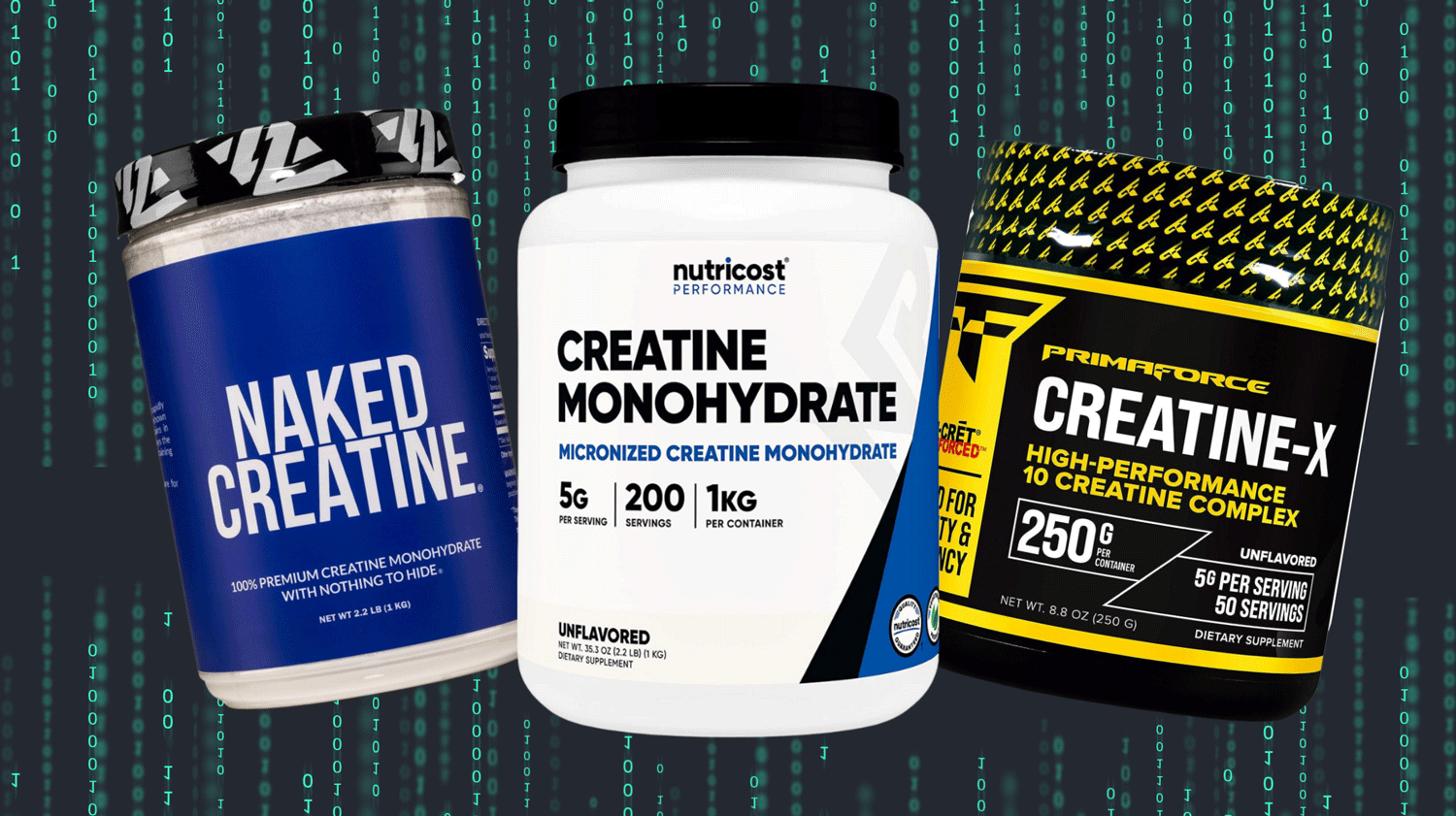How Using Creatine Can Benefit Your Brain
The Research On This Subject Looks VERY Promising!


Only few can match the versatile benefits of creatine monohydrate in the world of supplements. While it’s celebrated for its undeniable impact on muscle growth and strength, the lesser-known truth is that creatine is a cognitive powerhouse.


WHAT IS OUR #1 CREATINE SUPPLEMENT?
Check Our Ranking of the 12 Best Creatine Supplements for 2023
Creatine isn’t just a gym companion; it’s a mental ally. Scientific research supports its profound impact on cognition, memory, and overall brain health.
Creatine sharpens cognitive abilities, making complex tasks more manageable. It enhances working memory and aids in long-term memory retention.
Moreover, creatine bolsters mental resilience by supporting the brain’s energy production, combating fatigue and brain fog. It doesn’t stop there; creatine also offers neuroprotective properties, shielding brain cells from oxidative stress.
The Power of Creatine for Your Brain
- Memory and Cognitive Enhancement
- Alleviation of Mental Fatigue and Insomnia
- Accelerated Brain Injury Recovery
- Combatting Depression
Creatine and Your Brain
To grasp creatine’s profound influence on the brain, first, understand its dual role as a potent supplement and a vital chemical compound. Creatine, naturally occurring in muscles, fuels intricate biochemical processes. Appreciating its production and metabolism is akin to unlocking a key to cognitive prowess.
Exploring creatine unveils benefits like heightened cognitive function, memory retention, and mental agility. It’s a game-changer for peak mental performance. Dive into creatine’s impact on the brain, and harness its potential for a sharper, more agile mind.


The Role and Sources of Creatine
Creatine, a dynamic molecule, assumes crucial roles in our physiology, manifesting as a swift energy producer and guardian against oxidative stress. While renowned as a sports supplement for optimizing skeletal muscle performance, its influence extends into the realm of cognitive vitality.
In our dietary tableau, creatine elegantly presents itself in various forms. It graces our plates through the succulence of fish, the richness of red meat, the tenderness of poultry, and the robustness of pork. Additionally, creatine monohydrate, a dietary supplement, stands as a readily accessible source.
Yet, our physiology possesses the remarkable ability to craft creatine endogenously within several organs, including the brain. Here, it can exist as creatine or combine with a phosphate group to become creatine phosphate.
The Crucial Role of Creatine in Brain Health
Enhancing Memory and Cognition with Creatine
Creatine supplementation presents a promising avenue for enhancing cognitive function. Research reveals that it can elevate brain creatine and phosphocreatine levels by 6 to 9 percent in adults and the elderly, leading to tangible improvements in specific cognitive abilities.
Regardless of your fitness routine, creatine emerges as a valuable daily supplement, particularly considering your age group.
Interestingly, creatine appears to wield its cognitive benefits more significantly among vegans and vegetarians, potentially due to their lower baseline creatine levels. Healthy elderly individuals have also experienced enhancements in short-term memory through creatine intake.
However, sub-elite athletes, healthy adolescents, and elderly resistance trainers may not see the same cognitive gains, suggesting they may have reached their creatine storage limits.
Overcoming Mental Fatigue and Sleep Deprivation
Recovery Potential for Traumatic Brain Injuries


Possible Aid in Treating Depression
Creatine Doesn’t Benefit the Brains of Healthy Adolescents
A Strategic Approach to Creatine Supplementation
- The Steady Approach: Consistency is key. Take 3 to 5 grams of creatine daily, regardless of the time or whether it’s with or without food.
- The Loading Phase: For those who seek quicker results, consider a loading phase. In the initial six days, consume 20 grams daily, split into two 10-gram doses. After this period, switch to a maintenance dose of 3 to 5 grams per day.
- Tailored to Your Weight: Precision matters. Tailor your creatine intake to your body weight by consuming 0.3 grams per kilogram daily for the first six days and then transitioning to a maintenance dose of 0.1 gram per kilogram to maximize its benefits and optimize your fitness journey.



